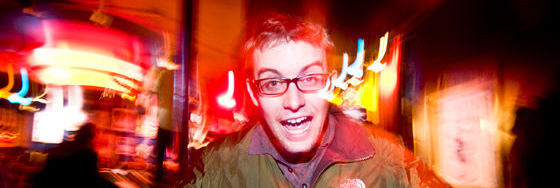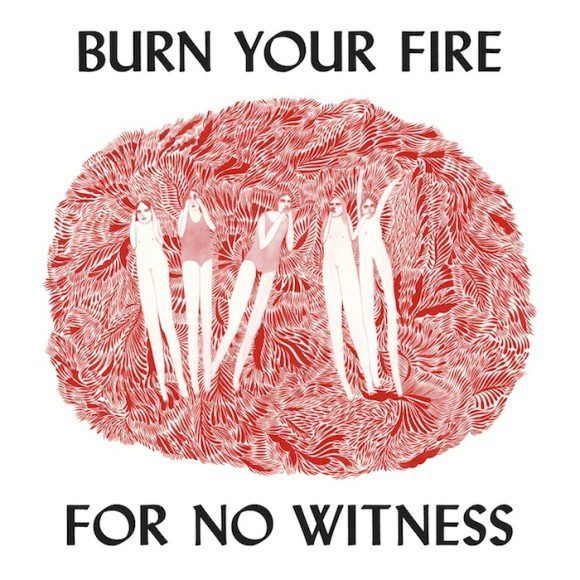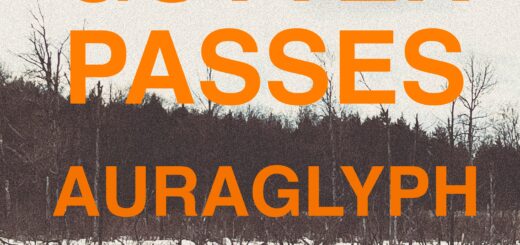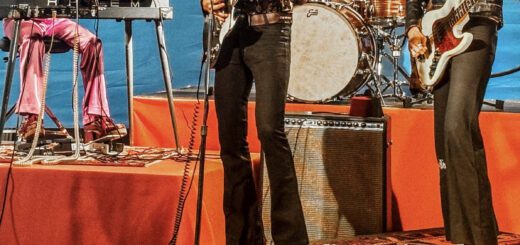Four Takes: Angel Olsen “Burn Your Fire For No Witness”
It can be difficult to gain a balanced perspective on an album after reading a single summary of the music. Bias can tilt a review, as can personal taste, history and just about everything else that is unique to the person writing it. So in an effort to offer an expanded perspective in such a medium, here are four reactions, four impressions, Four Takes on Burn Your Fire For No Wintness by Angel Olsen.
Christopher Matthew Jensen
92/100
My god, that voice. A supreme natural gift, no doubt, but it’s couched effectively, too. It just works. It’s the first thing that grabbed me about her and principally the thing that makes her special.
With most instruments, vibrato usually gets used to produce a fuller, more textured sustain. It’s like an ambiance thing; it deepens and colors the mix. (For a rock solid e.g. consider the pulsating bursts of guitar on “Hi-Five,” one of the standout tracks from Burn Your Fire For No Witness.) But in the human voice it signifies something else. Wavering. Oscillation. Discomfort. Fragility. Roy Orbison used it to devastating effect throughout his career, providing a ringing embodiment to the painful yearnings of the loner loser. Angel Olsen’s voice – easily the most exciting musical asset she wields, even with the emergence of full, electric arrangements for the first time on Burn Your Fire For No Witness – capitalizes on her stunning vibrato in a way that conveys the same kind of crushing vulnerability that made Orbison’s music so slit-your-wrist beautiful. With a newly sun-fried blend of guitar rock added to her crooning country lilt, Olsen’s got the same kind of incongruous loser swagger that Orbison pulled off so deftly in his big black shades.
Lonerism pervades across Burn Your Fire, but as the title of the album suggests, there’s a strength there in the acceptance; hence the swagger. “Are you lonely too?/Hi-five.” Olsen sings. Elsewhere, “I’m lighter on my feet when I’ve left some things behind.” And on the album’s opener “Unfucktheworld” she pounds out a refrain of “I am the only one now” ad infinitum in a sort of crescendo of conviction. Emotionally, it’s pretty easy to feel where she’s coming from, because, well, what sorry excuse for a meat sack hasn’t felt strength in owning their rejection or isolation at some point in their journey through life?
Sonically, there’s far more rock here than we’ve heard from Olsen before. “High and Wild” ends as the title describes in a rollicking mess of piano clattering and swirling electric guitars. And the first couple of tracks released before the album dropped, “Forgiven/Forgotten”and “Hi-Five,” both fit neatly inside the lumber and drywall confines of garage rock, at least musically. But despite this significant Darwinian leap she’s still got a foot, maybe a foot and a half in the elegiac folk and country sound she’s been mining since her debut. And thank the god for that as the quieter numbers give her voice the most room to dip and soar. And if it weren’t for that voice, we wouldn’t be talking about her anyway. So, hail to the quiet ones. Hail “Iota.” Hail “Enemy.” Hail human frailty. High fives all around.
 Chris Berry (Soft Abuse Records)
Chris Berry (Soft Abuse Records)
The first thing you notice is the voice. There’s a familiarness to it, but it’s definitely a unique thing & after a few songs the range and depth of Angel Olsen’s singing is completely obvious. Most other elements of her second album, Burn Your Fire For No Witness, are more slowly revealed, generally through nuance of performance, but her voice is out front & an amazing thing to behold. I read a while back that this record chronicles a relationship, which seems the case based on the lyrical content & the manner in which its presented. The latter is one of the more striking things about this record, having now listened dozens of times; the pace is a little jarring at first, with the most upbeat (tempo-wise) front-loaded, but this separation serves the record well by creating more space being the polarities. The arrangements lean on various midwest ssw types from the independent world, from Oldham to Callahan to Molina. This suits the songs & her voice, though, and besides the arrangements are actually compelling – the guitar in particular seems to shift as much as the singing, from aggressive attacks in some songs to fragile fingerpicking to almost dulcimer-like effects in others.
But what of the individual songs? This is a tricky discussion & a dissection worthy of someone smarter than myself. On this subject, though, I was speaking with a friend who wasn’t understanding the greatness or appeal of Angel Olsen (aside form dismissive tropes), which made some sense once the fact that he’d only heard two songs came to light. This is one of those rare records that demands attention from start to finish & rewards in-kind. Vainly grasping at lyrical segments or particular tunes seems a disservice. Buy this album, listen to it straight through & revel in both its might & fragility. Go ahead and get her previous LP, too (Half Way Home) – it hinted at greater things, which have thankfully come.

Jon Behm
90/100
Much hay has been made over the voice of young singer Angel Olsen. For good reason. She’s commends one of the most interesting, dynamic voices in music today. It isn’t just “good” according to the barometer normally used to gauge vocal ability. Plenty of people can sing amazingly well. What Olsen has going for her over the above average singer is both the uniqueness of her sound as well as her extremely keen writing chops. The former is probably her most formidable asset: Olsen has a sound like Billie Holliday had a sound. Not that they sound at all like each other, but Olsen’s throaty, operatic weirdness is as instantly recognizable as a jazz great’s. Her voice sounds like it warbles out from somewhere deep down near her stomach – in fact it often sounds as if the reverb is coming from sound bouncing off the sides of her larynx. Heavy reverb often provokes the “bottom of a well” comparison. Olsen often sounds like she’s singing from the bottom of herself.
And Olsen is a very good songwriter as well – she crafts opaque, deeply personal lyricism that fits the mold of her vocal ability perfectly. I say deeply personal, not because I claim to understand Olsen’s inner-workings, but because her songs convey a kind of sentimentality that is both impossible-to-describe and incredibly difficult to fake.
Olsen’s writing and vocal talents come together in Burn Your Fire For No Witness to make what is thus far the artist’s most accomplished work to date. The reverb has been damped down in degrees since Strange Cacti, and the song’s slicker and more immediately resonant. Burn Your Fire is louder than anything on Olsen’s last (excellent) record Half Way Home, but also as quiet and tender as anything on that (very quiet, tender) record. It will probably take me a number of listens to fall in love with it the way I have Olsen’s past work – but at first blush I like it much more so than I liked either of her past albums the first times I heard them. And I now love each (particularly Half Way Home) unreservedly. I am already well on my way to full swoon, and have little doubt that this will end up as a long-time favorite.

Josh Keller
77/100
Angel Olsen’s new LP Burn Your Fire For No Witness sounds as if it was recorded in an abandoned airport hanger, and I imagine a lot of time, energy, and money was spent making it sound that way. The guitars are genial and fuzzy and coast forward beneath Olsen’s weary but confident vocals. There is a general theme of loneliness woven throughout the album (especially jarring on the first third of the record), but it is an album that bounces through various genres and feelings throughout its 11 song lifespan. The production is blissfully lo-fi, but the timbre ranges from the raggedly spirited on songs like “High &Wild” and “Stars” to the more serene and brittle on “Iota” and “Enemy.” Album single “Hi-Five” is a demented country shuffle that meshes the lonely feelings with the more rocking musical output in a way that makes it a clear standout on the record.
Burn Your Fire For No Witness isn’t an album that had individual songs that jumped out at me, nor is it really an album that flows as one congruent document like some of her more noisy counterparts like Grouper. It is a record I enjoyed listening to 3 or 4 times for this review, but not one I will be rushing to fit into my playlist on a lazy Sunday afternoon. I can see how and why this record has stirred up many listeners, and maybe it will one day with me, but for now I’ll have to be content with the fact that this album seems really solid but doesn’t really set my world on fire.
Burn Your Fire for No Witness is available now via Jagjaguar. Angel Olsen will be performing at the Cedar Cultural Center on May 1st.







